
For - put them side by side -
The one the other will contain
With ease - and You - beside-
Emily Dickinson (1830-1886)
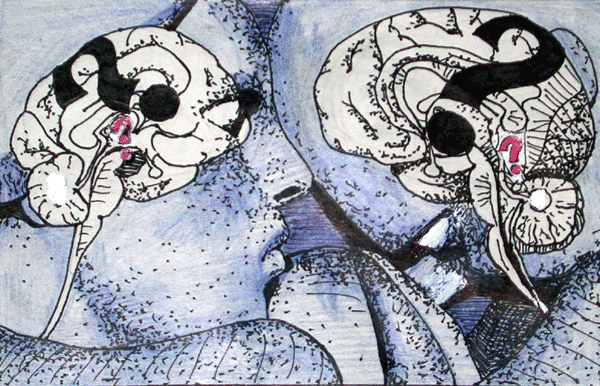
2005 Conference: Issues and Challenges in Child and Adolescent Mental Health
Bryn Mawr College Graduate School of Social Work and Social Research
8 April 2005
notes: http://serendipstudio.org/sci_cult/mentalhealth/neuropsychotherapy/7april05/
on-line forum: http://serendipstudio.org/forum/viewforum.php?forum_id=213&start=14373
Alternate title:
 |
The Brain - is wider than the Sky - For - put them side by side - The one the other will contain With ease - and You - beside- Emily Dickinson (1830-1886) |
 |
Finding the Self: saying good bye to the mind/body and biology/culture dichotomies?
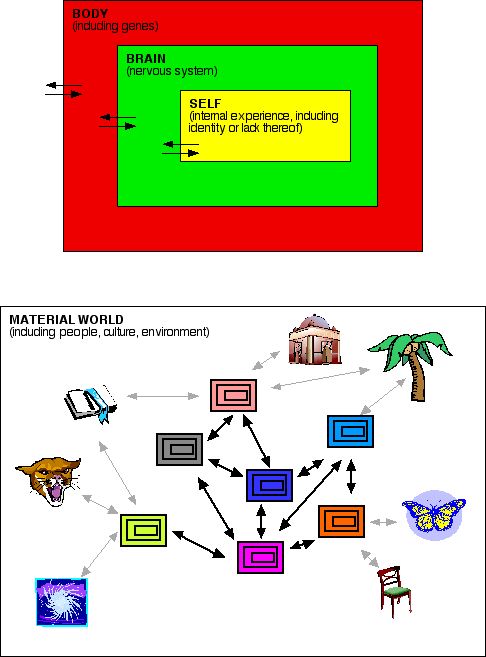
Not mind and body, not biology and culture but ....
Body with nervous system inside with part of nervous system inside that, all influenced by genes, all surrounded by (among other things) culture (itself influenced by genes)
Self is ....
Within the Nervous System: An Unconscious/Conscious Distinction
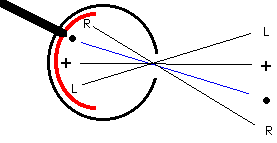 |
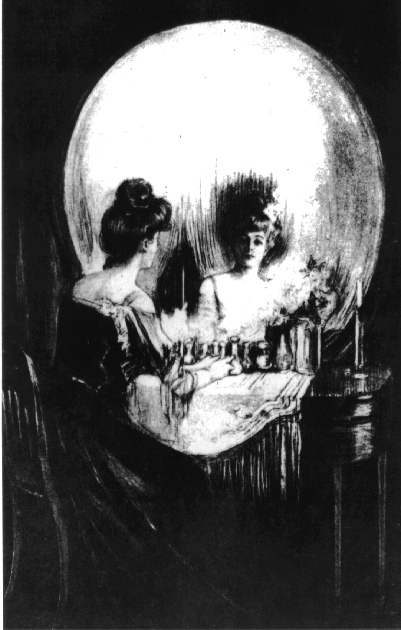 |
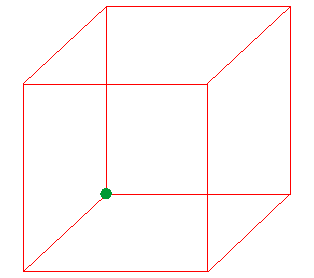 |
The Bipartite Brain/Mind - a distinctive architecture
 | 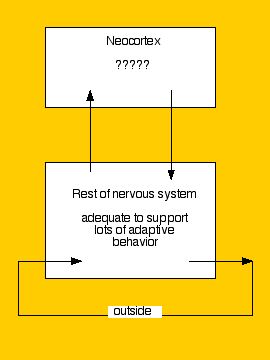
|
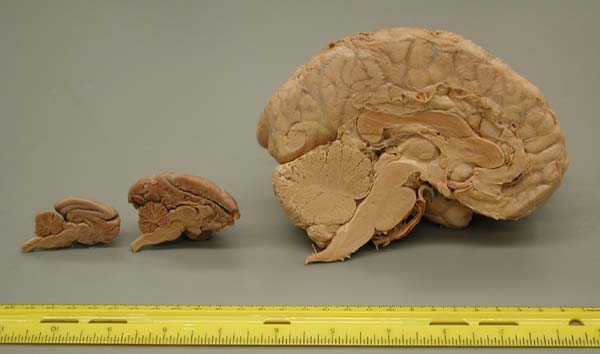 |
Updating Freud: there is no way in other than through the unconscious
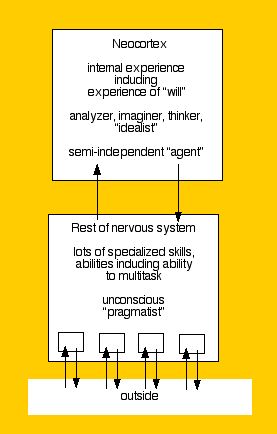
Finding Common Cause in Story-Telling?
Conscious/experiencer/"story teller" as a distinct part of the nervous system (neocortex) having a distinctive kind of organization
Stories
How make sense of "repression", "projection", "transference", of conflict in general (intra-personal and interpersonal) ... and of therapeutic efficacy?
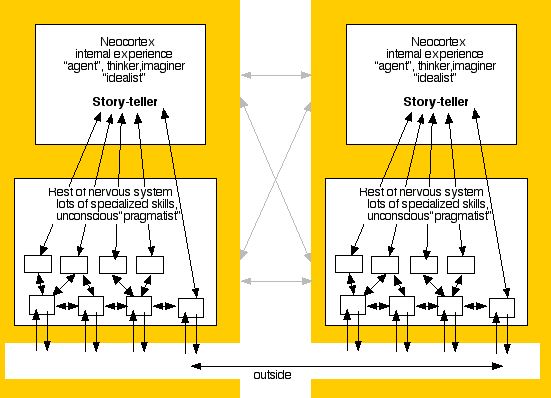
Intrapersonal conflict = differences between unconscious and story? evident in behavior, sometimes also in internal experience (Nash)
Can result from combinations of
Task of psychotherapist:
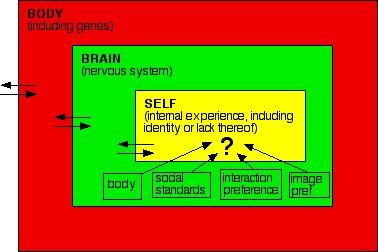 One case in point ...
One case in point ...
Using biology/neurobiology to move forward ...
| The Medical Model | The Biological/Neurobiological Model |
|---|---|
|
presumption of "illness" as distinct category presumption of perfectibility presumption of all people as aspiring to same "ideal" presumption of "patient" as object search for efficient "quick fix" therapies neglects (particularly for "mental health") to deal with important issues of personal responsibility, cultural influences |
accepts existence of continuous variation among individuals, both now and in future - indeed encourages diversity
emphasizes importance of innate influences, as well of experience and of personal choice acknowledges that some kinds of changes take extended time at best, may not be achievable at worst incorporates cultural context dependence helps to define both potentials and limits of personal responsibility |
References
| Conversations
| Mental Health
| Science in Culture
| Serendip Home |